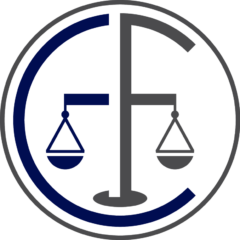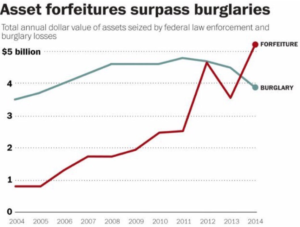The Government uses Civil Asset Forfeiture to confiscate property in cases involving suspected wrong-doing through the civil, not criminal, process. The civil asset forfeiture process can be used before a criminal prosecution to strip the defendant of assets that the Government believes are the fruits of criminal activity.
Attorney General Jeff Sessions announced this month that he intends to lift administrative restrictions placed on the federal government’s civil asset forfeiture program by the Obama administration.
North Carolina, with some exceptions, does not have a general civil asset forfeiture process. In general, assets can only be taken from a person once the person has finally been convicted of a crime, and then only with a finding by the court that the assets are fruits or substitutes for fruits of the crime.
What Assets Can be Seized?
The Government can seize any assets that it can link to the crime, from bank accounts, to cash, to guns, computers, boats, houses, or cars. In contrast to criminal forfeiture laws which allow the substitution of alternative assets if the tainted assets cannot be located, the Government cannot seize substitute assets to make up the difference in a civil asset forfeiture proceeding.
Statutory Authority
Federal statutes – principally 18 U.S.C. § 981 and 18 U.S.C.§ 2461 – give the Government authority to file a civil action to seize the defendant’s assets even before a criminal action is commenced.
Civil Asset Forfeiture Defined
Civil forfeiture is a proceeding directed against “guilty” property, not against a criminal defendant. Civil forfeiture is related to revenue and customs enforcement. Many federal forfeiture rules of practice are similar to admiralty and customs procedures. In certain cases, civil forfeiture laws permit the government to seize property without giving the owner notice or any prior opportunity to object.
Once the property owner or claimant is notified that a seizure has occurred, the owner may contest the action, but they must do so speedily. Typically the property owner must file a claim within twenty days and post a bond. At a hearing on the matter, once the government discharges its small burden of proving probable cause to forfeit, the burden shifts to the property owner to show, by a preponderance of the evidence, that the property is “innocent.”
The problem with civil asset forfeiture is that, first, the property owner enjoys none of the procedural protections ordinarily associated with a criminal trial, such as appointed counsel or a presumption of innocence. To escape a civil forfeiture, a property owner must prove that there was no underlying offense, or that, if there was an offense, the property was not connected to it.
In addition, because the action is a civil action, the property owner can be deposed by the Government. If there is a possibility or suspicion of criminal conduct, the deposition – which must be given under oath – can be used against the property owner later in a criminal proceeding.
If the property owner refuses to participate in a deposition, civil sanctions can apply, including dismissal of the property owner’s cause in trying to win back the property.
North Carolina Civil Asset Forfeiture Laws
North Carolina has laws that look like civil asset forfeiture, but are not. For instance, North Carolina’s unauthorized substance tax laws are separate proceedings that allow the Department of Revenue to levy a 100% tax rate upon people suspected of possessing controlled substances even before or in lieu of a criminal prosecution.
A person can avoid a North Carolina unauthorized tax assessment by purchasing a tax stamp for, say, the cocaine or marijuana they are selling.





